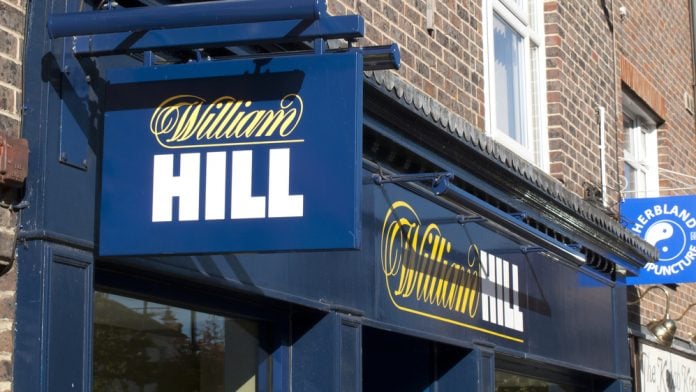William Hill has stated that ‘strong execution’ of its transformation programme and directives have helped the company maintain its digital momentum, as unforeseen COVID challenges impact its sports betting and retail units.
Publishing its H1 2020 update for the period ending June 30, the company recorded corporate net revenues of £554m, down 32 per cent on corresponding 2019’s £811m.
Mirroring industry trends, the FTSE betting group stated that period trading had been disrupted by COVID-19 impacts, enforcing the closure of its UK estates and the cancellation of the sporting calendar.
However, focusing resources on its digital assets, William Hill noted that it was able to sustain online growth at one per cent from £367.3m to £369.3m.
A breakdown of segments saw online international net revenue increase ten per cent, which the firm stated benefited from strong growth in gaming throughout the first half of the year, driven by increasing traction from product developments launched late 2019, a shift from retail to online and some substitutions from sports betting.
In line with its ambition to diversify internationally, 39 per cent of revenue was generated outside the UK compared to 35 per cent during the same time period last year, for which the report highlights was driven by the full integration of the Mr Green acquisition, where all international activities are now conducted from its Malta hub.
It went on to claim that Nordic regions enjoyed ‘strong progress’ with Sweden returning to growth following the regulatory developments of the prior year, and Denmark’s net revenue almost doubling.
Ulrik Bengtsson, chief executive officer, commented: “I am delighted with William Hill’s performance in these extraordinary times. Our team has been remarkable, supporting each other and our customers throughout the pandemic, and I would like to thank them for their continuing efforts.
“We are pleased with the moves we have taken to further strengthen customer protection, sending over 1.2 million player safety messages, and we are fully supportive of an evidence-based approach to the review of the Gambling Act, as suggested by the recent House of Lords report.
“We have clear proof that our strategy of focusing on Customer, Team and Execution is working. Our trading was strong before COVID-19, we controlled costs effectively during lockdown and we have recovered well post-lockdown with good performances in our online businesses throughout the first half.
“The furlough scheme provided welcome and timely support and meant we could protect the jobs of our 7,000 UK retail colleagues. Therefore, given the strength of our recovery post-lockdown, we have decided to repay the furlough funds. “We have continued to develop both our technology platform and our product offerings, with more significant enhancements to come in the second half.
“The balance sheet has been strengthened by the prompt actions we took to keep cash in the business, the successful placing, and the recognition of the VAT refund.
“As a result, we have the financial strength to confidently pursue our growth agenda, taking advantage of our market leading position in sports betting in the US, and the terrific opportunity that Eldorado’s merger with Caesars brings.”
However, as March progressed the effects of the COVID-19 pandemic began to have a ‘material impact’ on the group, with the closure of the UK and US retail businesses and the reduction of sporting activity.
William Hill claimed that the retail performance in the first half of 2020 was a reflection on a number of dynamics such as the anniversary of the implementation of the £2 stake limit on April 1, 2019, the proactive decision to remodel the estate in September 2019, closing 713 shops and the temporary closure of the estate in response to the pandemic. These combined saw a net revenue fall of 49 per cent on a like-for-like basis.
William Hill believes that the retail estate will play a ‘key role’ in keeping its brand in the forefront of customers’ minds due to the potential for regulations around advertising getting stricter.
Furthermore, it states that with the UK online product becoming ‘increasingly competitive’, the merger with retail is the ‘next logical step’ to create value and drive growth.










